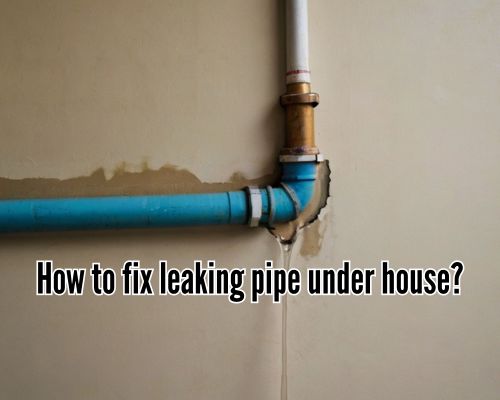When it comes to maintaining the integrity and safety of commercial buildings, one of the most critical aspects is the roof. The roof protects not only the structure but also the people and valuable assets inside. Commercial roofers in New Jersey play a crucial role in ensuring that roofs are installed, repaired, and maintained to the highest standards. But what exactly do commercial roofers do, and why should business owners in New Jersey care?

With Charles Jimerson of CJ Commercial Roofing NJ, we’ll explore the essential tasks commercial roofers perform, focusing on the services they offer to businesses in New Jersey. Whether you’re a property manager, a business owner, or someone looking to start a career in roofing, understanding the work of commercial roofers can help you make informed decisions about your roofing needs.
What Is a Commercial Roofer?
A commercial roofer is a professional trained in the installation, repair, and maintenance of roofs on commercial properties. Unlike residential roofers, who primarily work on homes, commercial roofers are experienced in handling large-scale roofing projects, which can range from office buildings and warehouses to shopping malls and manufacturing plants. In New Jersey, a region with varying weather conditions, commercial roofers must be particularly skilled at working with materials that can withstand harsh winters and humid summers.
Key Services Provided by Commercial Roofers
- Roof Installation and Replacement
One of the primary tasks of commercial roofers in New Jersey is installing new roofs. Whether you’re constructing a brand-new office building in Newark or replacing the roof on an aging retail center in Hoboken, commercial roofers have the expertise to handle different types of roofing systems.
Common roofing materials used in commercial projects include:
- Flat roofs: These are the most common types of roofs for commercial buildings in New Jersey, due to their cost-effectiveness and ease of maintenance. Materials such as TPO (Thermoplastic Olefin), EPDM (Ethylene Propylene Diene Monomer), and modified bitumen are often used.
- Metal roofs: Popular for their durability, metal roofs are frequently chosen for industrial buildings, warehouses, and commercial structures in New Jersey.
- Built-up roofs (BUR): Made of multiple layers of materials, BUR systems are known for their long-lasting nature and are suitable for large commercial buildings.
Commercial roofers carefully assess the building’s structure and climate to recommend the best roofing solution.
- Roof Repair and Maintenance
Roofing systems naturally degrade over time due to weathering, wear and tear, and environmental factors. For commercial buildings in New Jersey, timely repairs and regular maintenance are vital to extend the life of the roof and prevent costly damage.
Common roofing problems that commercial roofers address include:
- Leaks: Roof leaks are a serious issue for businesses, leading to water damage, mold growth, and a compromised building structure. Roofers perform inspections to detect leaks early and seal them to prevent further damage.
- Cracked or damaged membranes: For flat roofs, the roofing membrane may crack or tear, causing leaks. Commercial roofers repair or replace the membrane to restore the roof’s functionality.
- Punctures and punctured seams: Falling debris, weather events, or improper maintenance can cause punctures in the roof. Roofers use patching materials to seal these areas, ensuring that the roof remains waterproof.
- Roof Inspections and Assessments
Regular roof inspections are essential for identifying potential problems before they escalate into more severe issues. Commercial roofers conduct thorough inspections, checking for signs of wear, leaks, and damage.
In New Jersey, where heavy snow and storms are common in the winter months, commercial roofers frequently recommend seasonal inspections to prepare the roof for upcoming weather changes. Inspections help identify:
- Water pooling: Flat roofs are prone to water pooling, which can lead to significant damage if not addressed. Roofers check for ponding water and recommend solutions to prevent further deterioration.
- Debris buildup: Leaves, branches, and other debris can accumulate on the roof, especially after storms. Commercial roofers clear debris to prevent clogs in gutters and downspouts, which can lead to leaks and water damage.
- Energy Efficiency and Insulation
A growing focus among commercial property owners is improving the energy efficiency of their buildings. Roofs play a significant role in the building’s overall energy performance. Commercial roofers in New Jersey often recommend the installation of reflective coatings or better insulation to help reduce energy costs.
- Reflective coatings: These coatings reflect sunlight, reducing the heat absorbed by the roof, and help keep buildings cooler in the summer. This is especially important in urban areas like Jersey City, where heat islands can exacerbate energy consumption.
- Insulation: Proper roof insulation helps maintain consistent temperatures inside the building and can contribute to energy savings. It’s crucial for commercial buildings in New Jersey, where temperature fluctuations between seasons are significant.
- Emergency Roof Services
In cases of severe weather events, such as heavy snowstorms, hurricanes, or strong winds, commercial buildings are vulnerable to roof damage. When this happens, roofers provide emergency repair services to mitigate further harm. Whether it’s securing a damaged roof after a Nor’easter or handling an emergency leak from a summer thunderstorm in Trenton, commercial roofers are prepared to act quickly.
For professional needs, just visit CJ Commercial Roofing NJ.
Why Choose a Commercial Roofer in New Jersey?
When selecting a commercial roofer in New Jersey, there are several factors to consider:
- Experience: Look for roofers who specialize in commercial properties and have experience working with the type of roof you need.
- Licensing and insurance: Ensure the roofer is licensed and insured in New Jersey to avoid liability issues and guarantee the quality of work.
- Local knowledge: New Jersey’s climate can be harsh on roofs, so a roofer familiar with local weather patterns is crucial. Whether it’s preparing for the heavy snowfalls in the northern part of the state or dealing with the humid summers along the shore, a local roofer knows the best materials and solutions for New Jersey buildings.
- Customer reviews: Reading reviews and testimonials from previous clients can help you assess the roofer’s reliability, professionalism, and quality of service.
Conclusion
Commercial roofers are essential to ensuring the safety, efficiency, and longevity of a building’s roof. Whether you’re in need of a new roof installation, regular maintenance, or emergency repair services, New Jersey’s commercial roofing experts are ready to serve your business. With their specialized knowledge of the local climate, a commercial roofer can help protect your property and investment for years to come.
By investing in high-quality roofing services, New Jersey business owners can avoid costly repairs, improve energy efficiency, and ensure that their buildings are protected year-round. Always choose a professional roofing company that is licensed, experienced, and equipped to handle the unique needs of commercial roofing in New Jersey.
This article provides an overview of the services offered by commercial roofers in New Jersey, focusing on roofing installations, repairs, maintenance, and emergency services, while ensuring optimal SEO optimization with local mentions and a focus on relevant roofing systems for businesses in New Jersey.
